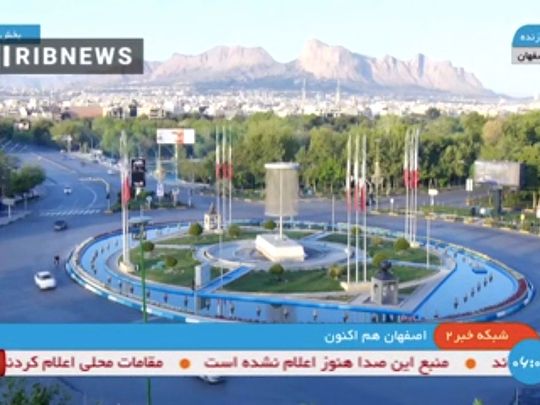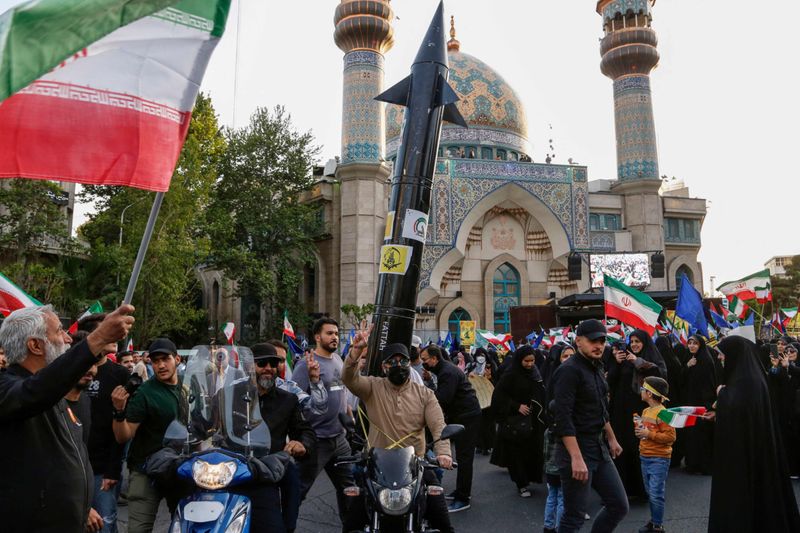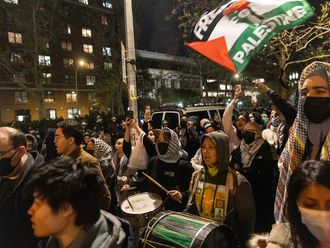
We are currently confronted with a series of established truths and recent historical experiences, all pointing to a universal conclusion: dangerous games inevitably come to an end. Iran’s persistent narrative, dating back to the collapse of the Shah’s regime, revolves around its assertion that it engages in conflicts beyond its borders to avoid confrontation within its own territory.
This rhetoric has been a staple in public discourse and stems from a long-standing historical fixation embedded in the narrative of modern Iranian history. It posits that the American intervention was the disrupter of Mohammad Mosaddegh’s revolution in 1953. However, it has become clear to those who seek the truth that the Americans did not, in fact, derail Mosaddegh’s movement. Instead, it was the conservative internal forces within Iran that did so.
Yet, this interpretation has not been assimilated into the revolutionary psyche of Iran, possibly for reasons that align with their ideological narratives. Based on the concept of waging war beyond its borders, Iran has actively promoted, funded, and supported regional entities, notably Hezbollah in Lebanon, Iraqi militias, the Houthis in Yemen, and Hamas in Palestine.
These groups, backed and armed by Iran, have been encouraged to sever ties with their respective nations and fuel conflicts with neighbouring states, disregarding the resultant turmoil. Their primary objective has been to confront US, followed by Israel, or any other nations perceived as hindrances to the Iranian agenda.
Israel has demonstrated limited concern for the stability or sovereignty of these nations, as long as they remain distant from its borders. In cases where their actions threatened Israeli interests, such as the conflict in Lebanon in 2006, Israel swiftly neutralised the threat.
The protracted and devastating conflict in Gaza, which garnered widespread condemnation of Israel in the Western world, shifted global sentiments and recalibrated alliances. It underscored to Israel that the central issue lies not solely in Gaza but also in Tehran’s support for these militant groups.
As long as Tehran continues to arm and finance these proxies, Israel perceives a direct threat to its security, both in terms of physical harm and the erosion of its regional allies. Consequently, Israel has resolved to confront Iran more directly on the battlefield.
Looking back at history, Winston Churchill, the British Prime Minister during World War II, fervently hoped for US involvement against the Axis powers, recognising its formidable strength. However, American entry into the war was initially hesitant until the Japanese military made a fateful error by attacking Pearl Harbor. This pivotal event shifted the course of the war, ultimately leading to the Allies’ victory, largely due to American intervention.
Similar strategic maneuvers have occurred in our region, notably during Abdul Nasser’s actions in 1976 and Saddam Hussein’s invasion of Kuwait in 1990. These instances, characterised by manipulation and enticement on one side and the allure of dominance on the other, have had profound consequences.

In contrast, Netanyahu lacked a Pearl Harbor-like pretext, so he engineered one by orchestrating an attack on the Iranian consulate in Damascus. This move aimed to compel Iran out of the shadows and into the open, exposing its intentions.
Netanyahu swiftly garnered support from Western allies, reversing his previous political isolation and bolstering domestic backing. Most significantly, he challenged Iran’s long-standing threats, including the infamous vow to “wipe Israel off the map,” putting their rhetoric to the test.
This situation left Iranian decision-makers in a precarious position, both in front of their own public and a significant portion of the Arab audience who believed Iran’s bold assertions that it could “wipe Israel off the map” with its modern weaponry.
This dilemma culminated in a decision that oscillated between outright war and a mere public relations skirmish. In response, Iran launched missiles and drones, an action it heavily publicised, reminiscent of an old parable where a bankrupt nobleman was forced to sell eggs. Despite his need to sell, he paradoxically hoped no one would hear his sales cries in the public square.
The narrative of using drones and missiles has recently become commonplace, and the anticipated Israeli counter-response followed suit.
The pivotal question is whether the Iranian regime will continue to fuel unrest in the Middle East or seek “guarantees” through behind-the-scenes negotiations to secure a balance where “neither the wolf dies nor the sheep are devoured.”
There’s a possibility that the symbolic responses from Israel hint at ongoing covert discussions. This theory is bolstered by past instances of Iran’s tactical flexibility, such as during the Iraq War, where Iran covertly agreed not to interfere while allowing American aircraft to traverse its airspace for operations against Iraq.
The core issue is that reverting to old tactics such as proxy wars is no longer viable, and the era of public relations wars has proven both futile and expensive. Therefore, the heavy toll of these conflicts — characterised by death, injury, displacement, and hunger — necessitates a definitive resolution.
Amid these transformative shifts in the region, will Arab militias come to their senses after wreaking havoc on their homelands, leaving behind a legacy of poverty, deprivation, and chaos?
Can Lebanon, Yemen, and Syria gradually reclaim stability, and will Palestinians forge unity, potentially paving the way for independence and security? These questions defy easy answers, but a new paradigm is emerging in the Middle East, diverging from the entrenched mechanisms of the past. We stand on the precipice of a new chapter.
In conclusion, Iran must reckon with the reality that Arab populations, no longer willing to tolerate Tehran’s influence, have grown weary of empty slogans, regardless of their proliferation.
Mohammad Alrumaihi is an author and Professor of Political Sociology at Kuwait University











